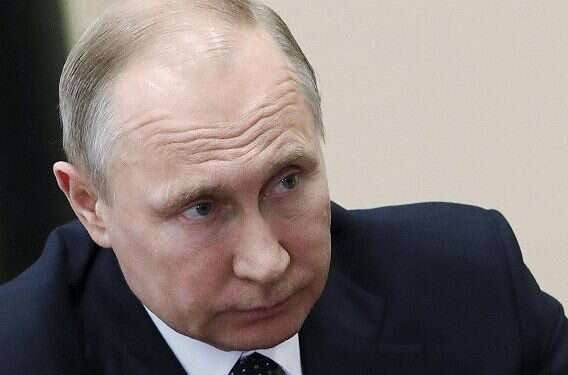Russian President Vladimir Putin warned on Sunday that further Western attacks on Syria would bring chaos to world affairs, as Washington prepared to increase pressure on Russia with new economic sanctions.
The weekend raid, which came in response to a deadly chemical attack that killed dozens of people in the rebel-held town of Douma on April 7, marked the biggest intervention by Western countries against Syrian President Bashar Assad and his ally, Russia, in the seven-year Syrian civil war.
The strikes targeted a weapons research and development center, chemical weapons storage facilities and a military command post.
Putin held a telephone conversation with Iranian President Hassan Rouhani in which they agreed that the Western strikes had damaged the chances of achieving a political resolution in the Syrian conflict, according to a statement issued by the Kremlin.
"Vladimir Putin, in particular, stressed that if such actions committed in violation of the U.N. Charter continue, then it will inevitably lead to chaos in international relations," the Kremlin's statement said.
Earlier, the Russian president condemned the strikes, saying the U.S. had launched "an aggression against a sovereign state which is at the forefront of the fight against terrorism," and that the attack was carried out in violation of the "principles of international law," as it was not authorized by the U.N. Security Council.
Russia and Iran have called the West's action a "military crime" and "act of aggression."
The U.N. Security Council rejected a Russian resolution calling for condemnation of the "aggression" committed by the U.S., France and Britain.
Iran's official IRNA news agency quoted Rouhani as saying the U.S. and "some Western countries do not want Syria to reach permanent stability."
Iran and Russia should not allow the "fire of a new tension" to flare up in the region, Rouhani said. He said the airstrikes were an "invasion" aimed at "emboldening defeated terrorists," IRNA reported.
French President Emmanuel Macron said on Sunday that the strikes were "retaliation, not an act of war."
A day after the U.S.-led strike, Assad appeared briefly on state TV, seemingly unfazed and reportedly in high spirits.
Assad told a group of visiting Russian lawmakers that the strikes were accompanied by a campaign of "lies and misinformation" against Syria and Russia in the U.N. Security Council.
Russia and Syria are "waging the same battles" against terrorism and want "to protect international law based on respect of the sovereignty of countries and the wills of people," Assad said in comments carried by state media, an apparent jab at the three Western allies.
Russian lawmaker Dmitry Sablin, who met with Assad, said he appeared upbeat and believed the airstrikes would unify the country.
Meanwhile, France has reached out to Russia and is urging it to join renewed peace efforts.
French Foreign Minister Jean-Yves Le Drian said Russia "should join our efforts to promote a political process in Syria that would allow a way out of the crisis."
German Foreign Minister Heiko Maas said he hopes the airstrikes will result in a fresh effort to find a peaceful solution to the Syrian conflict. He said European Union foreign ministers would meet Monday to discuss the situation and propose further steps.
British Foreign Secretary Boris Johnson said he hopes there is no need for more strikes in Syria, but that Britain and its allies will consider further action if Assad uses chemical weapons again. He said the airstrikes were proportionate and showed that "the world has said enough is enough."
In Damascus, Syrian Deputy Foreign Minister Faisal Mekdad met Sunday with inspectors from the Organization for the Prohibition of Chemical Weapons for about three hours in the presence of Russian officers and a senior Syrian security official.
The inspectors were set to attempt to visit Douma.
Russia condemned the Western states for refusing to wait for the organization's findings before attacking.




